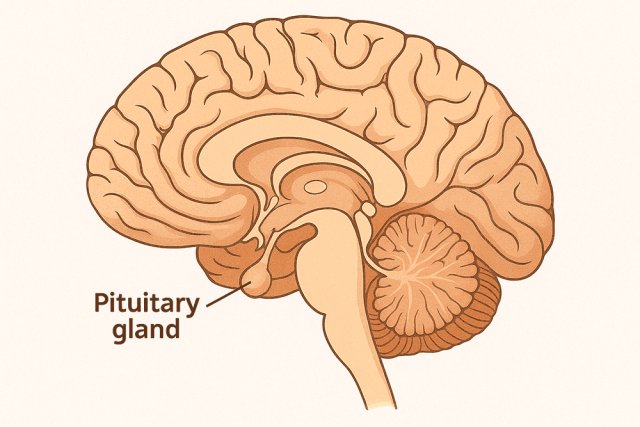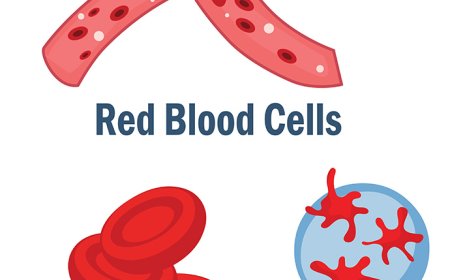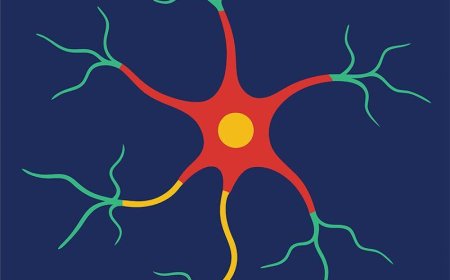How the Endocrine System Affects Growth, Puberty, and Balance
Discover how your endocrine system controls growth, puberty, metabolism, mood, and stress. Learn about hormones and how they keep your body in balance.

🔍 Introduction: Your Inner Balance Keeper
Have you ever wondered what makes you grow taller, feel different during puberty, or get “butterflies” when you’re nervous? It’s not magic—it’s your endocrine system at work! This powerful system helps your body grow, change, and react to life. It uses special chemical messengers called hormones that travel through your blood to tell your organs and tissues what to do.
In this article, we’ll explore how the endocrine system affects your:
- Growth and development
- Puberty and changes during adolescence
- Mood and emotions
- Metabolism and energy use
- Response to stress and danger
Let’s dive into the ways this amazing system keeps your body in balance every day!
📏 Growing Up: How Hormones Help You Grow
Growth starts even before you're born, and it continues until your late teens or early twenties. The hormone that’s most famous for helping you grow is called growth hormone (GH). It’s made in the pituitary gland, which is often called the “master gland” because it controls many other glands.
✨ What Growth Hormone Does:
Tells your bones to grow longer
Helps muscles and organs grow and stay healthy
Supports healthy weight and height during childhood and teen years
If your body doesn’t make enough GH, you may grow more slowly. If it makes too much, you might grow too tall. Doctors can check GH levels if they think something is off.
🧬 Puberty: Your Body's Big Transformation
Puberty is the time in your life when your body begins to change from a child into an adult. The endocrine system plays a huge role during this time, and it's different for boys and girls.
🧠 It All Starts in the Brain:
The hypothalamus (a part of your brain) tells the pituitary gland to start puberty. Then, the pituitary sends out hormones that tell other glands—like the ovaries in girls and testes in boys—to begin producing sex hormones.
🧍♀️ Girls:
- Ovaries make estrogen
- Triggers breast development
- Starts menstrual cycle
- Changes fat distribution (hips, thighs)
🧍♂️ Boys:
- Testes make testosterone
- Triggers deeper voice
- Grows body and facial hair
- Increases muscle size
Puberty can take several years and often feels confusing. That's okay—your endocrine system is just helping your body grow into its adult form!
🔋 Metabolism: Managing Your Body’s Energy
Have you ever noticed that some people seem to eat a lot but don’t gain weight, while others gain weight more easily? That has a lot to do with metabolism—the way your body uses energy from food.
Your thyroid gland, located in your neck, controls your metabolism by releasing thyroid hormones. These hormones affect how fast or slow your body:
- Burns calories
- Digests food
- Makes energy
- Controls body temperature
If your thyroid makes too much hormone (hyperthyroidism), you may feel jittery or lose weight too quickly. If it makes too little (hypothyroidism), you might feel tired or gain weight easily.
😌 Mood and Emotions: Hormones in the Brain
Have you ever felt super happy one moment and then sad the next—especially during puberty? That’s not just your imagination. Hormones also affect your mood, emotions, and brain activity.
🧠 Important Hormones for Mood:
- Serotonin: Helps with happiness and calm feelings
- Dopamine: Involved in pleasure and motivation
- Cortisol: Released during stress, helps with alertness
- Estrogen & Testosterone: Can cause mood swings during puberty
Hormones travel to the brain and affect how you feel. That’s why teens may feel more emotional than younger kids. It’s all part of your endocrine system’s job of helping you grow!
⚡ Stress Response: Your Built-in Alarm System
Imagine a dog suddenly runs toward you. Your heart races, your breath quickens, and you feel ready to run. That’s your endocrine system helping you react to stress! This is called the fight-or-flight response.
Your adrenal glands (sitting above your kidneys) make adrenaline and cortisol—the stress hormones. These help your body:
- Increase heart rate
- Focus your brain
- Move energy to muscles
- Slow down things you don’t need right then (like digestion)
These reactions are helpful in emergencies. But too much stress over time (called chronic stress) can be harmful, so learning how to relax is important, too.
⚖️ Homeostasis: Keeping Everything Balanced
Your body is always trying to stay in balance—a state called homeostasis. The endocrine system is like a thermostat, constantly checking and adjusting your:
- Blood sugar
- Body temperature
- Water levels
- Energy use
For example, the pancreas makes insulin, a hormone that helps control blood sugar levels. If your blood sugar is too high after eating, insulin helps bring it down. If the balance is off, like in diabetes, it can affect your whole body.
🥗 How You Can Help Your Endocrine System
Even though your glands work on their own, you can support them with healthy habits!
Healthy Tips:
🥦 Eat a balanced diet with fruits, veggies, and whole grains
😴 Get enough sleep (8–10 hours for teens!)
🏃♀️ Stay active with daily exercise
🚫 Avoid smoking, drugs, and too much sugar
🧘 Try relaxation methods like deep breathing or yoga
These habits help your hormones stay in balance—and help you feel your best.
🧠 Vocabulary List
Hormones – Chemical messengers that carry signals through the bloodstream
Pituitary gland – The master gland that controls other glands
Growth hormone (GH) – Hormone that helps the body grow
Estrogen – Female sex hormone
Testosterone – Male sex hormone
Metabolism – The process of using energy from food
Thyroid gland – Gland that controls metabolism
Cortisol – A stress hormone
Adrenal glands – Glands that help in stress response
Homeostasis – The body’s way of keeping everything balanced
⭐ Kid-Friendly Summary
Your endocrine system is like a superhero team that uses hormones to help you grow, change, and stay balanced. It controls things like height, puberty, energy, emotions, and how you react to stress. Glands like the pituitary, thyroid, pancreas, and adrenal glands work together to make sure your body runs smoothly. Even though these changes can feel confusing sometimes—especially during puberty—it’s all part of your body growing up. You can help your endocrine system by eating healthy, sleeping well, and staying active!
🤯 Fun and Interesting Facts
Your body has over 50 different hormones!
The pituitary gland is only the size of a pea, but it controls most other glands.
Hormones can travel through your blood in just seconds.
Some animals, like frogs, change from tadpoles using hormones!
You start puberty anywhere between age 8 and 14, and everyone’s timeline is different.
❓ Interactive Quiz: Test Your Endocrine IQ!
1. What gland produces growth hormone?
A. Thyroid
B. Pituitary
C. Adrenal
D. Pancreas
2. What hormone is responsible for changes in boys during puberty?
A. Estrogen
B. Insulin
C. Testosterone
D. Cortisol
3. What do the adrenal glands help with?
A. Digestion
B. Blood sugar
C. Stress response
D. Bone growth
4. Which hormone helps balance blood sugar levels?
A. Adrenaline
B. Estrogen
C. Insulin
D. Serotonin
5. What does the thyroid gland control?
A. Mood
B. Metabolism
C. Puberty
D. Breathing
🟢 Answers: 1-B, 2-C, 3-C, 4-C, 5-B






















































